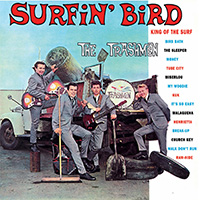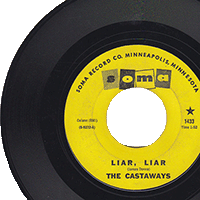Dixie in St Paul: 1858
June 16, 1858
An article by Irv Letofsky in Select Magazine (March 1961), tells the story of the Minnesota connection to the very Southern song “Dixie.” There is no question that the song was written by Daniel Decatur Emmett, but there is some controversy as to where and when. According to St. Paul historian Mark Fitzpatrick, Dan wrote it in the summer of 1857 on the porch of his brother’s house in St. Paul. His brother was Lafayette Emmett, who was the first Chief Justice of the Supreme Court of Minnesota. (Lafayette’s house, perhaps the first brick residence in the city, was located at 279 West Seventh Street and was torn down in 1942.) Dan was in town that summer playing in the Old Gents’ Band, backing Sallie St. Clair’s Varieties in Market Hall. Fitzpatrick asserts that Dan took the “crude manuscript” to the Munger Ben’s Music Hall on Kellogg Blvd. and played it on his violin, receiving enthusiastic applause. “Newspaper files in the Twin Cities reveal frequent and insistent testimonies of oldtimers that “Dixie” was first sung to Russ Munger and that Munger asked Emmett to present it in a show at the old Ingersoll Hall on Wabasha Street between Second Street and Kellogg Blvd.” This was probably an earlier version of the song.
Other experts claim that the song was written the next year, when Emmett returned to New York City and joined Dan and Jerry Bryant’s Minstrels. Dan asked Emmett to write a “walkaround’ or “hooray” number for the next show – something catchy that people would whistle in the street. That story was that he composed the song “Dixie,” which was brought to the public a year and a half later in a show called “Pocohontas,” (sic) showing in New Orleans. It was sung by Miss Susan Denin and “the audience immediately lost its collective mind.”
Emmett told conflicting stories of the origin of the song, but shortly before his death in 1904 he told Lamp Magazine:
On Saturday night Dan Bryant requested me to write a walkaround for the following week. The time allotted me was unreasonably short, but, notwithstanding, I went to my hotel and tried to think out something suitable. But my thinking apparatus was dormant.
Then, rather than disappoint Bryant, I searched through my trunk and resurrected the manuscript of “I Wish I Was in Dixie’s Land,” which I had written years before. I changed the tempo and rewrote some of the verses, and in all likelihood, if Dan Bryant had not made that hurry-up request, “Dixie” never would have been brought out.


